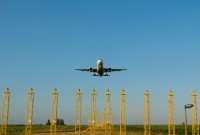- Home
- Business Processes
- Industry Knowledge
- Aerospace Industry
- Automotive Industry
- Banking Domain
- BFSI Industry
- Consumer/ FMCG Industry
- Chemicals Industry
- Engineering & Construction
- Energy Industry
- Education Domain
- Finance Domain
- Hospitality Domain
- Healthcare Industry
- Insurance Domain
- Retail Industry
- Travel and Tourism Domain
- Telecom Industry
- Leadership Skills
- eLearning
- Home
- Domain Knowledge
- Aerospace Industry
- Civil Aerospace: Maintenance, Repair & Overhaul (MRO)
Civil Aerospace: Maintenance, Repair & Overhaul (MRO)
This subsector under the civil aerospace industry includes the maintenance, repair, and overhaul (Known as MRO) of civil aircraft and aircraft components. This includes line and heavy maintenance of civil aircraft, as well as repair and overhaul of all parts of an aircraft, including engines, electronic components, and avionics, instruments, and aircraft structures.
Also known as “Maintenance, Repair & Overhaul” involves fixing any sort of mechanical, plumbing or electrical device should it become out of order or broken (known as repair, unscheduled or casualty maintenance). It also includes performing routine actions which keep the device in working order (known as scheduled maintenance) or prevent trouble from arising (preventive maintenance). MRO may be defined as, "All actions which have the objective of retaining or restoring an item in or to a state in which it can perform its required function. The actions include the combination of all technical and corresponding administrative, managerial, and supervision actions."
Maintenance, Repair, & Operations (MRO):
Aircraft maintenance is the overhaul, repair, inspection, or modification of an aircraft or aircraft component. Maintenance includes the installation or removal of a component from an aircraft or aircraft subassembly, but does not include:
Elementary work, such as removing and replacing tires, inspection plates, spark plugs, checking cylinder compression, etc.
- Servicing, such as refueling, washing windows.
- Any work is done on an aircraft or aircraft component as part of the manufacturing process, prior to the issue of a certificate of airworthiness or other certification documents.
Maintenance may include such tasks as ensuring compliance with Airworthiness Directives or Service Bulletins and the following:
- Civil Aerospace Parts Requirements
- Reverse Engineering & Design Requirements
- Parts Manufacturing, PMA, and Other Alternatives
What is the Aircraft Maintenance, Repair & Overhaul Industry?
Companies in this industry provide support services, such as aircraft inspection and testing, ferrying aircraft between departure gates and taxiways, aircraft maintenance and repair, and aircraft and parts overhaul, to air transport operators. The main industry services are commonly referred to as maintenance, repair, and overhaul (MRO).
Industry Products:
- Aircraft maintenance and repair
- Aircraft and aircraft parts overhaul
- Aircraft parts and supplies sales
- Other services
Industry Activities:
- Maintenance, repair, and overhaul (MRO) of aircraft and parts
- Ferrying aircraft between departure gates and taxiways
- Inspection and testing of aircraft
Industry Profile & Trends:
Given the importance of aircraft safety, MRO maintenance has evolved to become a key market within the aviation industry. The market is expected to become increasingly competitive as OEMs continue to expand with after-sale services and more providers emerge from within developing markets. Continued demand for air travel provides MRO's with ample opportunities with the introduction of a multitude of new aircraft. It is estimated that the value of the global commercial aircraft MRO market in 2012 will reach $49 billion.
The global commercial aircraft MRO market is showing encouraging signs of recovery after many years of slow growth. Mature markets of North America and Western Europe will continue to have a strong influence on the MRO industry; however, increasingly Central Asia, the Middle East, and South America are providing a variety of opportunities for business due to their rising economies. This might result in more international providers attempting to gain a stronghold in these respective markets by adopting proactive strategies, including joint ventures and consolidation practices.
Suggested Reading and Resources
Related Links
You May Also Like
-
Civil Aerospace - Commercial Simulation and Training
Training people how to operate and maintain today’s sophisticated aircraft as well as on-board and ground support systems can be very complex and costly. To be effective, the training environment must accurately simulate the features and capabilities of the actual systems in a wide range of operating scenarios. Commercial modeling, visual simulation, flight simulation, and computer-based training are the key methods used by this subsector.
-
Civil Aerospace Sector - Sector Profile
In this article, we will discuss the four important sub-sectors of the Civil Aerospace Sector namely “Civil Aircraft Manufacturing”, “Commercial Avionics”, “MRO” and “Commercial Simulation & Training”.
-
Civil Aerospace: Civil Aircraft Manufacturing Industry
This article discusses sectors within the Civil Aerospace Sector and its subsectors, products, and services. This article provides an overview of the definition, industry products, industry activities, and global locations.
-
Civil Aerospace: Commercial Avionics Industry
Commercial avionics refers to cockpit electronics and airborne equipment, although it doesn't include antennas, recorders, or other passenger-only cabin systems. Avionics is referred to denote the electronic systems that are utilized in aircraft.
-
Civil Aerospace: Maintenance, Repair & Overhaul (MRO)
This subsector under the civil aerospace industry includes the maintenance, repair, and overhaul (Known as MRO) of civil aircraft and aircraft components. This includes line and heavy maintenance of civil aircraft, as well as repair and overhaul of all parts of an aircraft, including engines, electronic components, and avionics, instruments, and aircraft structures.
-
Key Sectors of Aerospace and Defense Industry
Understand the categorization of the aerospace industry to various sectors based on the services it currently provides. Understand the key constituents under these sectors and activities under each of these sectors.
-
Application of Aviation in Military – A Short History
Aerospace is an industry that has a history of about a century in the defense space. This article discusses how the historic flight of the Wright brothers in 1908 gave birth to the aerospace defense industry that today employs 850K people in the US only.
-
Aerospace Industry - The Competitive Landscape
This article provides an overview of the competitive landscape of the aerospace industry. Read how the compaction is shaped up across the US and the globe, followed by a detailed discussion of the top 5 players in the sector in terms of revenue.
-
An overview of the Aerospace Industry. A brief account of how modern aerospace began way back with Sir George Cayley in 1799 and the success story of the Wright Brothers to today's massive international airspace developments.
-
Aerospace Industry: The Business Model
In this article, we will discuss the value chain of the Aerospace Industry and will define the generic business model to understand the key process areas in the aerospace industry. This will provide you with a basic understanding of key activities in the industry.
Explore Our Free Training Articles or
Sign Up to Start With Our eLearning Courses

About Us
Learning
© 2023 TechnoFunc, All Rights Reserved










